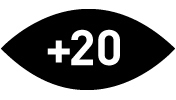

Peter Weir wraps up an outstanding run of ‘80s pictures with his most commercial project yet—the Disney/Touchstone coming of age drama Dead Poets Society. Robin Williams stars as John Keating, a 1950’s English professor who returns to teach at his alma mater—an elite, all-male, New England prep school—where he uses poetry to inspire his students to question the conformist ideology of their parents and schoolmasters. Keating’s unorthodox teaching methods, and his very presence at the school, have a profound effect on several of the impressionable boys, especially the painfully shy Todd Anderson (Ethan Hawke) and the seemingly well-adjusted Neil Perry (Robert Sean Leonard).
The “inspirational teacher picture” is one of the most dubious sub-genres in cinema. Often based on true stories, these movies, even at their best, usually amount to little more than simplistic explorations of complex issues; with their most valuable attribute being a showcase for the talents of a great actor—To Sir with Love, Conrack, Stand and Deliver. At their worst, these films celebrate the highly questionable methods of rebel teachers who try to singlehandedly take on the flaws in the educational system and attempt to mold kids in their own image—Lean On Me, Dangerous Minds, School of Rock. Dead Poet’s Society could easily have fallen into either of these categories (or both) but director Weir and writer Tom Schulman wisely focus their story, not on the charismatic teacher, but rather on his students. Williams may be top-billed, but he has minimal screen time in comparison with the actual protagonists—a group of his students who resurrect a secret club Keating started when he was an undergrad, the titular Dead Poets Society. This genre-defying focus on the young ensemble of then-unknown actors rather than Williams’ lively and beguiling professor was all the more surprising because the anarchic stand-up comedian turned actor was just coming off his most successful project to date, Barry Levinson's Good Morning, Vietnam (1987). That picture had been tailored specifically around Williams’s manic, improvisational talents, and earned him his first Oscar nomination. But while Dead Poet’s Society (and certainly its trailer) does feature Williams doing some of his signature shtick in the classroom, the film is by no means a vehicle for the movie star and Williams doesn’t treat it as such. On the contrary, this is his most nuanced and affecting performance apart from The World According to Garp (1982).
Still, it is not difficult to imagine this star-driven studio picture, produced by the team behind TV's The Partridge Family, The Golden Girls and Blossom (Paul Junger Witt and Tony Thomas) turning out as little more than a bag of familiar clichés. All the standard tropes of the genre are present in Schulman’s script—the strict disciplinarian headmaster, the overbearing father, the self-satisfied fellow teacher, the out-of-reach love-interest and her big, dumb, football player boyfriend—but in Weir's hands, every aspect of this movie rings true. The mystically minded Australian director has always been skilled at circumventing genres. The Last Wave is a supernatural thriller about race relations. The Year of Living Dangerously is a romantic drama about politics. Witness is an action thriller about pacifism. Here Weir delivers what almost every other entry in the inspirational teacher cannon fails to satisfactorily provide—an exploration of the cost and consequences of challenging the system. Dead Poet’s Society tells a story as bleak as its title, yet it still manages to be as rousing and inspiring as any of its predecessors or followers without ever feeling contrived. The film earns its emotions and the well-worn narrative beats upon which they hang, through the finely drawn and exquisitely performed young characters. In addition to Hawke and Leonard, the gifted ensemble of newcomers includes Gale Hansen, as a rebellious but principled extrovert, and Josh Charles, as a goofy romantic dreamer. Both make the most of their small but beautifully integrated subplots. While Norman Lloyd, Kurtwood Smith, and Leon Pownall transform roles that could easily come off as paper-thin villains into dimensional characters with clear and relatable motivations.
Though a period piece set in the stuffy 1950s, the film’s non-conformist themes struck a resounding chord for audiences in the complacent 1980s. It became a major hit and was nominated for four Academy Awards including Best Picture, Best Director, Best Actor, and Best Original Screenplay. Schulman won the screenplay award despite stiff competition from the superior work of all four of his fellow nominees: Woody Allen for Crimes and Misdemeanors, Spike Lee for Do the Right Thing, Steven Soderbergh for Sex, Lies, and Videotape, and Nora Ephron for When Harry Met Sally. Several critics considered the movie one of the year’s most overrated, and many audiences questioned why they should care about the emotional plight of privileged white boys in the 1950s. But Dead Poet’s Society’s message of embracing one’s identity and finding one’s community can resonate with any viewer of any background who has ever felt like they don’t know how to, or don’t want to, live up to the expectations of their family, their community, or their society.
Twitter Capsule:
Williams plays a charismatic English professor at an elite '50s prep school in Weir's exquisitely realized drama, which transcends the dubious "inspirational teacher genre" by focusing on the student characters played by a gifted young ensemble.







